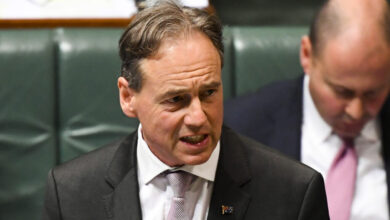By Peter White
NASHVILLE, TN — Because of an $8.7 million budget shortfall, the Metropolitan Transit Authority (MTA) is raising fares and cutting 8 bus routes. Regular bus fare will increase from $1.70 to $2. WeGo’s door to door paratransit service will increase from $3.40 to $3.70 per trip. The fare increases will go into effect August 2. Route changes will occur in late September.
Magnetic stripe change and fare cards will be in use until December 2020. WeGo will then switch to stored value fare cards which are like EBT debit cards. So-called smart media will automatically provide a two-hour transfer. Buses will still accept cash but no longer sell tickets in order to speed up boarding times.
The bottom line is that bus riders will pay more for less service. At a board meeting last week, the MTA directors decided to cut its two free downtown circular routes, and instead will ferry commuters from the Music City Star train station to a few downtown stops. The part of Route 29 which goes down Jefferson Street to TSU will be retained but cost a normal fare.
The increased fares will bring in an extra $300,000 and that will keep Sunday service on the 25 Midtown route. It will also allow expanded service on Routes 8 and 17 on 8th Avenue South. Other changes are listed at WeGo’s website: nashvillemta.org.
“I think it’s going to be a transit crisis. A lot of people have limited funds who are depending on the buses to get to work or hospitals,” said Kutonia Smith, MCR spokesperson.
About 100 Music City Riders rallied in front of the central bus terminal on Tuesday, June 18, and marched to City Hall in support of a substitute budget that would have raised teachers’ wages, continued certain bus routes, and extended hours of operation. The city council failed to pass that budget by one vote forcing the cutbacks to Metro’s bus service.
“We need a new mayor who’s for the Nashville workers,” Smith said. “We don’t feel like the ones who are here are for the people so they need to be replaced. They’re not for the Nashvillians who live here. They’re just for the tourists,” she said.
“The riders union is consistently and regularly raising hell about these things, as they should. And they have been focused where they should be focused—on the council and the Mayor,” said Walter Searcy. Searcy is a MTA board member and chairs MTA’s operations and finance committee.
“The access ride community is really is bus dependent. They come out to these meetings. You can expect that they will be well-represented,” Searcy said.
MTA’s paratransit service uses smaller buses for people with disabilities and the elderly who are picked up from their homes. About 100 people attended the MTA board meeting on Thursday, June 27 at Music City Center. About 25 bus riders took three minutes at the microphone to address the five-member MTA board.
Rhonda Clark is glad the on-demand service won’t be cancelled. “You can‘t go anywhere in this town for $2. You can’t go anywhere in this town for $4. You can sit in traffic and waste $2 in gas,” Clark said. Clark is okay with paying a bit more to get where she wants to go and back again when she wants to return. She has lived in Nashville for 23 years.
“Nashville is one three cities out of the 40 largest cities in the country that does not have a dedicated funding stream for mass transit,” Searcy said. That means MTA does a yearly dance adjusting fares and services, as well as its workforce, from its piece of Metro’s operating budget.
“Future growth requires predictable and reliable funding to sustain the services we provide to our communities. This year’s budget only further serves to highlight the need for a long-term, dedicated funding source for transit, one that relieves pressure on a Metro General Fund budget crucial to so many community priorities,” said Steve Bland, WeGo Public Transit CEO.
This article originally appeared in The Tennessee Tribune.



